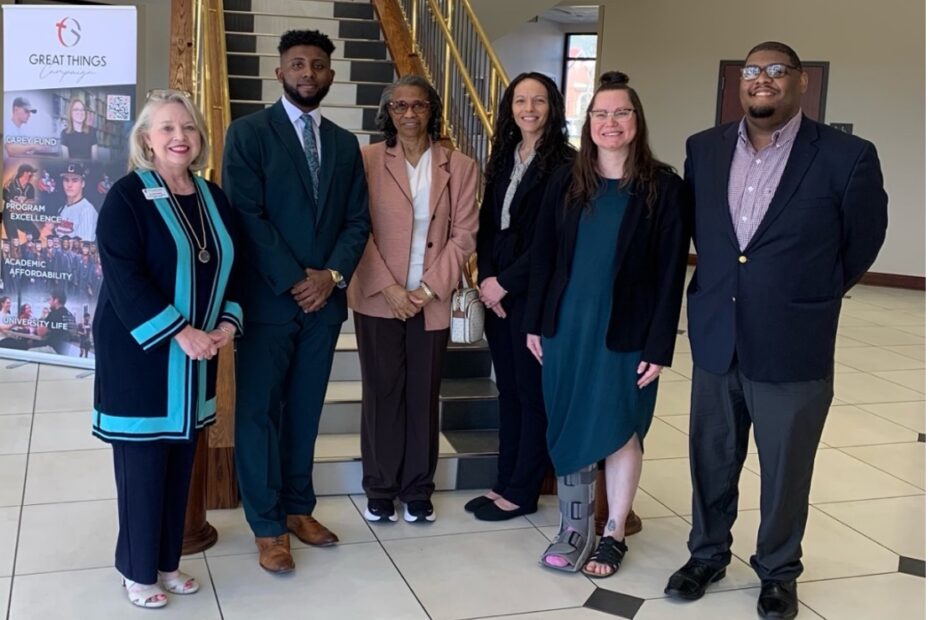Mississippi's Rural Teachers
Buiding Relationships, Building Mississippi
This February, the Mississippi Rural Education Association (MSREA) announced the 2025 Teacher of the Year. Four finalists selected from each of the four different Mississippi Congressional districts were recognized in a ceremony hosted by PREPS. Before the ceremony, MSREA team members were able to meet and talk with the finalists about their work in rural schools. According to the 2023 Why Rural Matters report, published by the National Rural Education Association, over half of Mississippi’s public-school students attend school in a rural school district.[i] In our conversation with Mississippi’s Rural Teachers of the Year, teachers talked to us about their roles as educators in rural schools and the need for policies that support rural education.
Rural Teachers Open the World to Their Students
Several of the rural teachers of the year spoke about the importance of exposure to people, ideas, and resources within and beyond the community. For example, the teachers stated how beneficial virtual tours of museums and other educational places are for their students. One teacher stated, “It’s like magic to them, but all it is… is outreach.” The teachers named specific resources that support rural learners. A teacher said, for example, “We’re partnering with our MSU extension agency in our county to bring 4H into our building and . . . . they have STEM and all these things.”. Another teacher stated how impactful it was when the football team from a nearby college came to read to the school’s kindergarten students. The guests that come to school, the in-person and virtual field trips teachers find for students, all these make learning more engaging and bring new ideas to students—especially when these opportunities show the opportunities and successes of right there in local communities. That teacher also stated, “They need to see success from—from their point of view… from where they come from… And, we have to bring it into our buildings because they can’t get out.”
Rural Teaching is about Caring
For the MSREA Teachers of the Year, making connections is one of the best parts of working in a rural school. One of the teachers told us the benefit of teaching in rural schools is that “ . . . it’s easier to actually build relationships and make connections. And, when you actually start to get to know the parents and kids, you can actually know how to help them.” This sentiment was echoed by a fellow nominee who said, “I will tell you that I know all of our families because I’m the only third grade teacher and all of those kids and their siblings roll through me.” That teacher also noted that standard school events, such as “Meet the Teacher” can feel like a family reunion, which helps both their students’ and the parents’ anxieties decrease and performance increase.” The closeness and familiarity of working in small rural schools can make you a better teacher, they told us, because “it just gives you different approaches on how to help the kids. And the relationships teachers build support student learning. As one teacher told us, “Before you can show a kid how much you know, you’ve got to show them how much you care.”
Rural Teaching Matters and Should be Involved in Decisions
Teachers play a critical role in shaping the future, and their voices should be integral to decision-making processes. This year’s rural teachers of the year told us they wish that decision makers had a better understanding of the needs and strengths of rural schools. One teacher told us, “The teachers should have a voice too. ” Including teachers’ voices in curriculum, instructional materials, and assessments development helps ensure they’re relevant and effective. Another educator said, “We have incredible talent. There’s so much potential here, and without rural education, without rural America, the rest of the country is going to struggle.” Teachers can give input to help provide meaningful professional development, build a positive school culture, and create realistic behavior policies that directly impact teaching and learning. Most importantly, they must be heard in conversations about student support as they see firsthand what their students truly need to succeed.
MSREA is operated under a partnership between PREPS at William Carey University and the RE:RI Lab at the Social Science Research Center at Mississippi State University.
